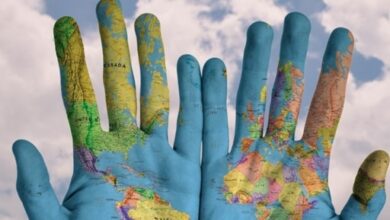Mother tongue definition impact Can we have two mother tongues
Mother tongue
The definition of Mother tongue is a common expression that is also often presented as popular language , mother tongue , native language or first language . It defines, as is clear from the meaning of the two words that form it, to the first language that an individual manages to dominate or, in other words, to the language spoken in a given nation with respect to its natives.
Ultimately, the mother tongue is the one that is best known and understood, in terms of the subjective assessment that the person carries out with respect to the languages they speak. It is also about that language that is acquired naturally through interaction with the immediate environment, without > pedagogical interventions and without a consciously developed linguistic reflection .
In general, the mother tongue is known and incorporated from the family. The ability in the mother tongue is essential for subsequent learning as it forms the basis of thinking. On the other hand, a partial mastery of the mother tongue hinders the process of assimilation of other languages.
More about Mother Tongue
According to the theories of Noam Chomsky and other linguists, the mother tongue can be learned until approximately twelve years of age. Once this period is over, the linguistic abilities of each person are different and every language incorporated becomes a second language.
After the apparent simplicity of the concept of the mother tongue lies a cluster of factors that sometimes contradict each other, so the term mother tongue is not always univocal. The complexity of the term is evident if one compares what some users of the language, including specialists, understand by mother tongue; Here are some criteria considered in the characterization of the concept:
- the mother‘s own language;
- the usual language within the family, transmitted from generation to generation;
- the first language that one learns, the language in which one begins to know the world ;
- the language in which one thinks, the one that knows best and in which one communicates with greater spontaneity and fluency and with less effort, and, for all this, the language that one prefers to use both in situations of maximum intellectual complexity and in those others of maximum privacy;
- the language that one feels as one’s own, as part of their individual identity and their own community.
What is the impact of a mother tongue?
Can you “lose” the mother tongue?
Can we have two mother tongues?
Can you really be bilingual without having been taught in two languages?
Some factors, however, could compensate for the lack, for example, reside in a language-speaking country, have a partner who speaks a different language or work in an environment that uses another language. All these situations allow to use language in a context and with a purpose beyond the purely utilitarian and allow to understand the cultural context of that language.
International Mother Language Day
In November of 1999 the General Conference of UNESCO declared February 21 as the day of the mother tongue. As of February 2000, this date is celebrated in most countries, in order to promote all the languages of the world.
That day offers an effective mobilization opportunity in favor of linguistic diversity and multilingualism.

